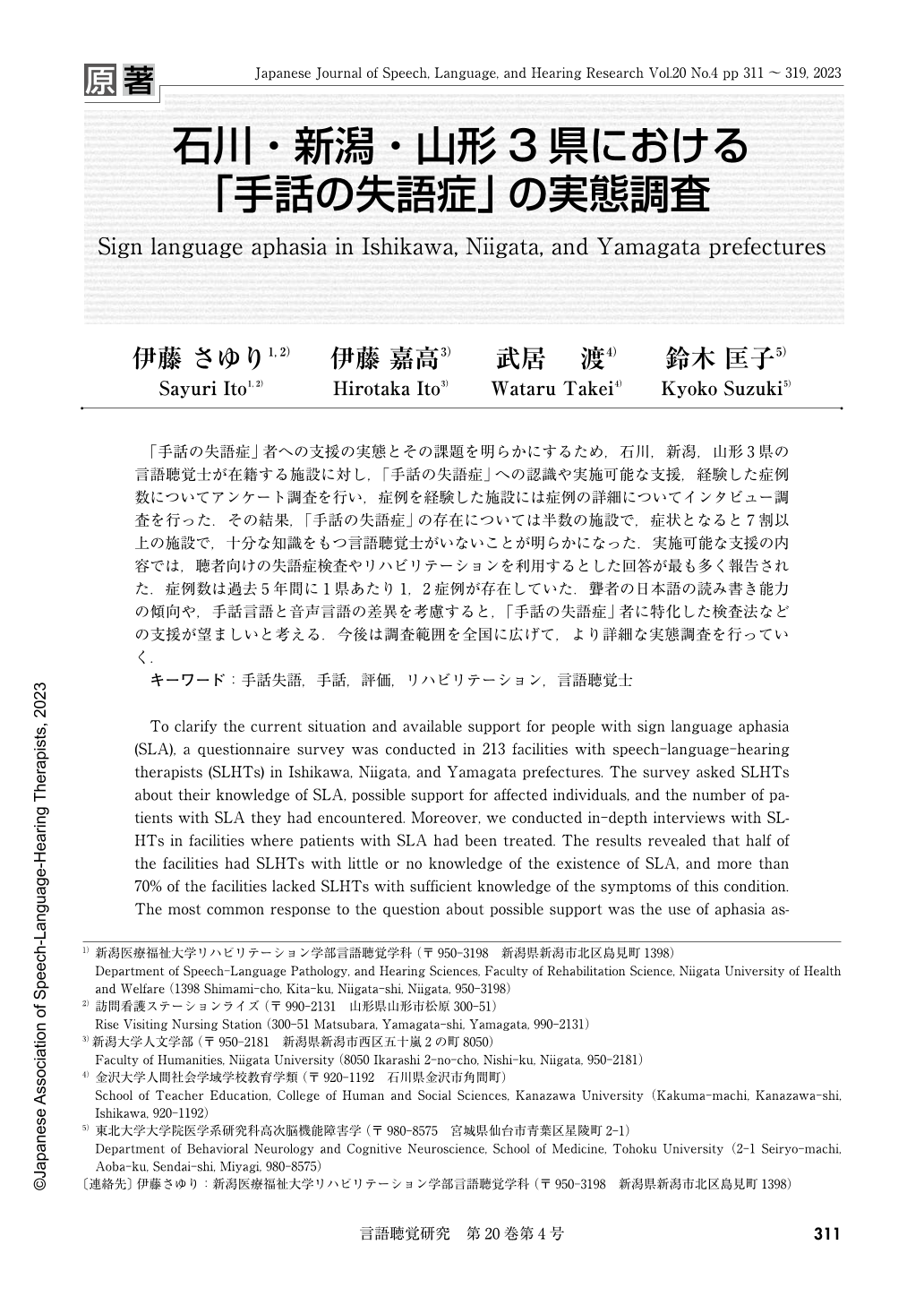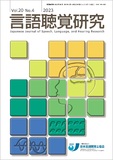Japanese
English
- 有料閲覧
- Abstract 文献概要
- 1ページ目 Look Inside
- 参考文献 Reference
「手話の失語症」者への支援の実態とその課題を明らかにするため,石川,新潟,山形3県の言語聴覚士が在籍する施設に対し,「手話の失語症」への認識や実施可能な支援,経験した症例数についてアンケート調査を行い,症例を経験した施設には症例の詳細についてインタビュー調査を行った.その結果,「手話の失語症」の存在については半数の施設で,症状となると7割以上の施設で,十分な知識をもつ言語聴覚士がいないことが明らかになった.実施可能な支援の内容では,聴者向けの失語症検査やリハビリテーションを利用するとした回答が最も多く報告された.症例数は過去5年間に1県あたり1,2症例が存在していた.聾者の日本語の読み書き能力の傾向や,手話言語と音声言語の差異を考慮すると,「手話の失語症」者に特化した検査法などの支援が望ましいと考える.今後は調査範囲を全国に広げて,より詳細な実態調査を行っていく.
To clarify the current situation and available support for people with sign language aphasia (SLA), a questionnaire survey was conducted in 213 facilities with speech-language-hearing therapists (SLHTs) in Ishikawa, Niigata, and Yamagata prefectures. The survey asked SLHTs about their knowledge of SLA, possible support for affected individuals, and the number of patients with SLA they had encountered. Moreover, we conducted in-depth interviews with SLHTs in facilities where patients with SLA had been treated. The results revealed that half of the facilities had SLHTs with little or no knowledge of the existence of SLA, and more than 70% of the facilities lacked SLHTs with sufficient knowledge of the symptoms of this condition. The most common response to the question about possible support was the use of aphasia assessments and rehabilitation designed for hearing people. One or two cases of SLA were reported per prefecture in the past 5 years. Considering Japanese literacy of deaf people, and the difference between signed and spoken languages, it is desirable to provide specialized support for people with SLA, including assessments and interventions specifically developed for this population. A further detailed national survey is needed.

Copyright © 2023, Japanese Association of Speech-Language-Hearing Therapists. All rights reserved.


